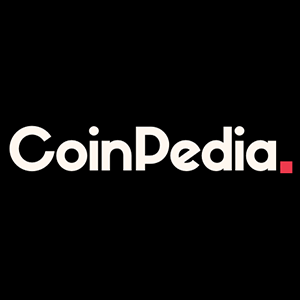The Bitcoins Bulgaria’s government reportedly sold in 2018 now represent a $25 billion missed opportunity
3 min read
In 2018, Bulgaria allegedly quietly sold off 213,500 Bitcoins seized from a criminal syndicate, reaping what then seemed like a prudent windfall. But with Bitcoin now trading at over $117,000, those coins would be worth more than $25 billion today, roughly $1 billion more than Bulgaria’s current public debt. While the Balkan nation has denied seizing or even liquidating the Bitcoins in question, the story has come to symbolize a missed strategic opportunity, eclipsing even Germany’s recent sales in scale and consequences. Bulgaria, once briefly speculated to be among the world’s largest sovereign Bitcoin holders, is now being cited as a textbook example of selling too early, even though it appeared like a fiscally responsible decision at the time. The episode resurfaced this week following a post on X , noting the value comparison between Bulgaria’s rumored Bitcoin stash and its national liabilities. Binance founder and crypto billionaire Changpeng Zhao “CZ” responded to the post , writing: “Bitcoin could solve most public debt.” Bitcoin could solve most public debt. https://t.co/sBq81KMkio — CZ 🔶 BNB (@cz_binance) July 16, 2025 A $3 billion decision with $25 billion consequences The 213,500 BTC were reportedly originally seized in 2017 as part of Operation SELC, a coordinated crackdown on a customs fraud ring. At the time, the Bulgarian authorities did not disclose the fate of the coins in detail. However, by 2018, several local reports suggested the holdings had been sold off in tranches, likely netting the government around $3.5 billion, based on Bitcoin’s price hovering between $10,000 and $17,000 at the time. Fast-forward to mid-2025, and Bitcoin’s meteoric rise has rewritten the economic implications of that decision. With the coins now worth over $117,000 each, the trove would be valued at over $25 billion. That’s more than Bulgaria’s estimated $24 billion debt as of the end of 2024, per data from World Economics . Germany also missed its Bitcoin payday Unlike Germany , which recently made headlines for offloading part of its Bitcoin reserves through the Bundeskriminalamt (BKA) , prompting price volatility, Bulgaria’s earlier sell-off appears less tactical and more conservative. At the time, the logic was rooted in caution: avoid volatility, monetize seized assets swiftly, and strengthen short-term cash positions. However, critics argue that the move reflected a lack of foresight in managing unconventional reserves. Had Bulgaria adopted a more balanced strategy, retaining, for example, 10% to 20% of its Bitcoin while offloading the rest, it would today sit on a strategic reserve valued between $2.5 and $5 billion. That cushion could have enabled debt restructuring, currency stabilization, or long-term infrastructure investment, analysts suggest. CZ’s Bitcoin-as-debt-hedge thesis CZ’s comment “Bitcoin could solve most public debt” taps into a growing school of thought that Bitcoin could serve as a hedge against sovereign debt risk, particularly in a climate of rising inflation and global fiscal imbalances. VanEck, the asset manager, recently modeled a scenario in which the U.S. Treasury held Bitcoin reserves as a complement to gold, projecting that a modest allocation could offset future liabilities if adopted early. In Latin America, countries like El Salvador have taken a much more assertive stance, incorporating digital gold into national reserves and launching Bitcoin-backed bond instruments. While critics call such policies reckless, advocates argue that they position countries to benefit disproportionately in the next crypto cycle. Whether true or not, as long as the urban myth continues to make the rounds, Bulgaria’s Bitcoin liquidation could go down as one of the most significant missed fiscal opportunities of the last decade. Your crypto news deserves attention – KEY Difference Wire puts you on 250+ top sites

Source: Cryptopolitan



